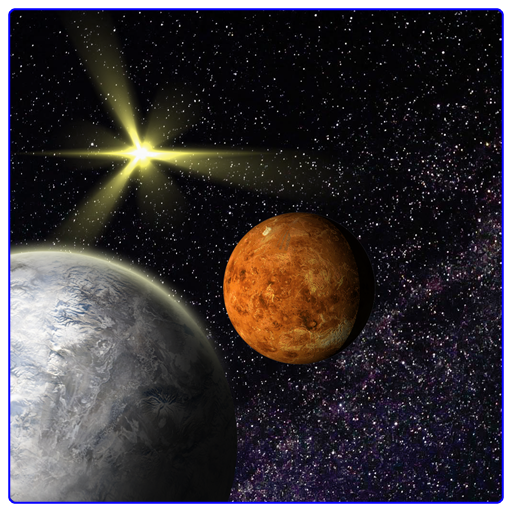I finally got the fundamentals working on star, planet and moon generation in my project to make a procefurally generated universe. Hooray for me! But with the basics out of the way, I am facing the next step: Making it better than 'basic'. And that leads me into some thinking...
It was always my intention to get the basics running, and then start applying real sciences to get the ball moving from there on. Geology for planet formation, astrophysics for stars and orbits and such, eventually biology for life. Even chemistry, at some point, for allowing the generation of substances that I would not think of on my own. But standing here, almost ready to dive into that, I can't help but think... Should I?
Don't get me wrong, I want to. I love science and I studied up on all (aaaaall!!!) the sciences before diving into this project a few months ago. I have notebooks full of scribbles about fault lines and convection cells and more. But there are two issues that have begun to bother me.
The first issue is simply one of time. It will take a lot of time to get proper scientific stuff integrated into the code, not just because there is a lot of science, but because despite all the mathy stuff, there is no predefined way for me to integrate it. Sure, physics engines can give me an idea of how to do basic colission things, and maybe some games or scientific papers can help me on my way to implement other sciences here and there, but overall, this is not territory that others have seemed to bother with. Either they make games and therefore use shortcuts (or just ignore the whole science issue and slap in something weird. Hello, No Man's Sky, funny seeing you here!), or they are running big simulations that only get used to produce a model of some kind, not something that can actually be interacted with like a game. It seems like I need to reinvent the wheel to get rolling (pun kinda intended).
But second and even more importantly, do we want actual science in our games?! Sure, science-y stuff is neat. I love SpaceChem dearly, but let's be honest, that's not how a chemistry course would show it all working. We all know about the Uncanny Valley for how things look, but from various chats with people both online and off, I get the feeling that scientifically accurate (okey, let's be realistic, scientifically approximated) content might be upsetting to some. Games offer a false sense of simplicity, removing a lot of the distractions of the real world. Minecraft takes a lot of flak for how huge slabs of stone can hover in mid-air, becomes only some substances have (very simple) gravity effects. But is it maybe a benefit to have things be this unrealistic? Minecraft sure has not suffered for it, sales-wise.
I want the science in there. I love the idea. But it keeps nagging at me if just making landscapes form at complete random isn't better than designing ways for geological forces to mold worlds. If a few basic animals with some simple variations aren't better than a system for approximating actual evolution.
For once, I really have no extensive rant on the matter (sorry if you like my rants). It's just a thought that keeps bugging me...









What if.. instead of an all-encompassing math-based world, you chunked it into several projects?
For instance, I kind of like the idea of a series of games where you are a god who has to use science to manipulate the world. If you think about it, the game mechanic of "crafting" already exists, but instead of throwing a bundle of wood onto a candle to get a torch you maybe move magma and plates, tweak pressures, model erosion and rock formation and such to get a volcanic explosion to decimate your followers' enemy. (if anyone makes this I want design credit!)
And another project is about chemistry, another about rigid body physics, etc. Maybe over time these ideas can be combined.
Meaning, maybe it's not so much about the game being the science as it is using science to create the fundamental rules of the game.